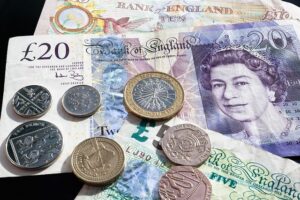The Role of Government Policies in Shaping Norway’s Investment Climate
Norway, known for its stunning landscapes and rich natural resources, has long been recognized as one of the most attractive countries for investment. A combination of strategic government policies, a stable political environment, and a robust economy catalyzes this favorable investment climate. This article explores the various roles that government policies play in shaping the investment landscape in Norway.
The Economic Framework
Norway’s economic framework is strongly influenced by the country’s commitment to social welfare and sustainable development. The government plays a central role in moderating the economy, balancing the interests of businesses, workers, and society as a whole. Strategic interventions and regulations have been created to ensure that economic growth aligns with social goals such as environmental sustainability and social equity.
The Norwegian Government Pension Fund Global (GPFG), one of the world’s largest sovereign wealth funds, is a prime example of how the government utilizes its oil wealth to secure long-term economic stability. By investing in various domestic and international assets, the GPFG helps finance public services while ensuring that future generations benefit from the country’s natural resource wealth.
Stability and Regulatory Framework
A significant factor in attracting foreign investment to Norway is the country’s political stability and transparency. The government adheres to a well-established legal framework, which promotes fair competition and protects investors’ rights. Clear regulations covering various sectors, from fishing to technology, help businesses navigate the legal landscape with ease.
The Norwegian government ensures that policies are transparent and predictable. This stability is critical for businesses considering long-term investments, as it lowers the risk associated with uncertainties in regulatory changes. Investors are more likely to place their capital in markets where they can anticipate future developments based on the current legal and regulatory landscape.
Sustainability Policies
Norway has positioned itself as a global leader in sustainable development, driven by its government policies. The commitment to achieving carbon neutrality by 2030 alongside ambitious sustainability targets creates a vibrant market for green investments. The government encourages businesses to innovate and adopt environmentally sustainable practices through tax incentives and grants.
One of the most notable initiatives in recent years has been the Green Tax Reform, which aims to transition the economy away from fossil fuels while bolstering clean technology investments. This has attracted foreign investors interested in sustainability, positioning Norway as a hub for green technology and renewable energy.
Infrastructure Development
Government policies also extend to infrastructure development, which plays a crucial role in enhancing the investment climate. Efficient transportation systems, digital connectivity, and energy supplies represent foundational elements that support business growth. The Norwegian government’s commitment to investing in infrastructure ensures that companies can operate efficiently and that foreign investors see the country as a viable option.
Norway’s investment in infrastructure transcends traditional domains, focusing on smart cities and cutting-edge technology. Recent initiatives include substantial funding for digital infrastructure and improvements to the public transport network, which collectively enhance the quality of life and business environment.
Taxation Policies
The Norwegian taxation system is designed to strike a balance between generating revenue for public services and maintaining an attractive environment for investors. The corporate tax rate in Norway is relatively competitive, currently standing at 22%, which remains one of the lowest rates compared to other Scandinavian countries. Furthermore, the government has introduced various tax incentives aimed at attracting foreign direct investment (FDI).
For instance, businesses that invest in specific sectors, such as technology and renewable energy, may benefit from tax breaks or deductions. Additionally, the government often collaborates with municipalities to create tailored financial frameworks that encourage local and foreign investments, considering factors like employment and innovation.
Investment Promotion and Assistance
To foster an investment-friendly environment, the Norwegian government actively promotes investments through various institutions, including Innovation Norway and Norfund. These organizations work to bolster private-sector development and facilitate access to capital for startups and SMEs. By offering financial support, advisory services, and networking opportunities, the government creates a conducive environment for businesses to flourish.
Furthermore, Innovation Norway plays a pivotal role in promoting innovation and entrepreneurship through funding programs, export assistance, and facilitating partnerships between domestic and international companies. Such measures attract capital from both local and foreign investors wishing to partake in Norway’s dynamic economy.
Labor Market Policies
The characteristics of the Norwegian labor market also help shape the investment climate. Norway has a highly skilled workforce supported by robust educational and vocational training programs. The government emphasizes continuous education and skill development to prepare the labor force for future challenges and technological changes. This commitment to human capital development is a significant draw for foreign investors who seek a capable and adaptable workforce.
Moreover, labor market regulations promote a balance between flexibility and security for both employers and employees. The model seeks to avoid overly stringent employment laws, thus attracting businesses while ensuring fair labor conditions. This equilibrium creates a harmonious environment where companies can be agile in response to market conditions yet remain socially responsible.
Foreign Relations and Trade Policies
Norway is not part of the European Union; however, it maintains close ties to the EU and is a member of the European Economic Area (EEA). This relationship facilitates access to the single European market and fosters trade and investment opportunities, enhancing Norway’s attractiveness to investors. The government continues to pursue free trade agreements to bolster economic ties with countries around the world, further opening up avenues for investment.
In addition, Norway has established various trade missions and diplomatic initiatives that promote business partnerships globally. Such efforts are critical, especially considering the increasingly interconnected global marketplace and the importance of maintaining competitiveness on an international scale.
Challenges Ahead
Despite its many strengths, Norway faces several challenges that may affect its investment climate. The global transition towards a green economy necessitates that the government continually adapt its policies to facilitate innovation while retaining its competitive edge. Additionally, geopolitical tensions, fluctuating oil prices, and the impact of climate change require a proactive and flexible policy framework.
Furthermore, addressing the challenges posed by an aging population and ensuring sustainable growth in all regions of the country is essential. The government must prioritize economic diversification to mitigate the potential risks associated with dependence on oil revenues, ensuring long-term viability.
Conclusion
In summary, the role of government policies in shaping Norway’s investment climate is multifaceted and crucial. Through a combination of economic stability, sustainability initiatives, robust regulatory frameworks, and strategic promotion of investment opportunities, the Norwegian government has created a conducive environment for both domestic and foreign investors alike.
As Norway continues to adapt to the evolving global landscape, it remains imperative that policies remain agile and responsive to emerging challenges while harnessing new opportunities for growth and investment. This will not only secure Norway’s economic prosperity but also ensure that it remains a leader in sustainable development and innovation.



